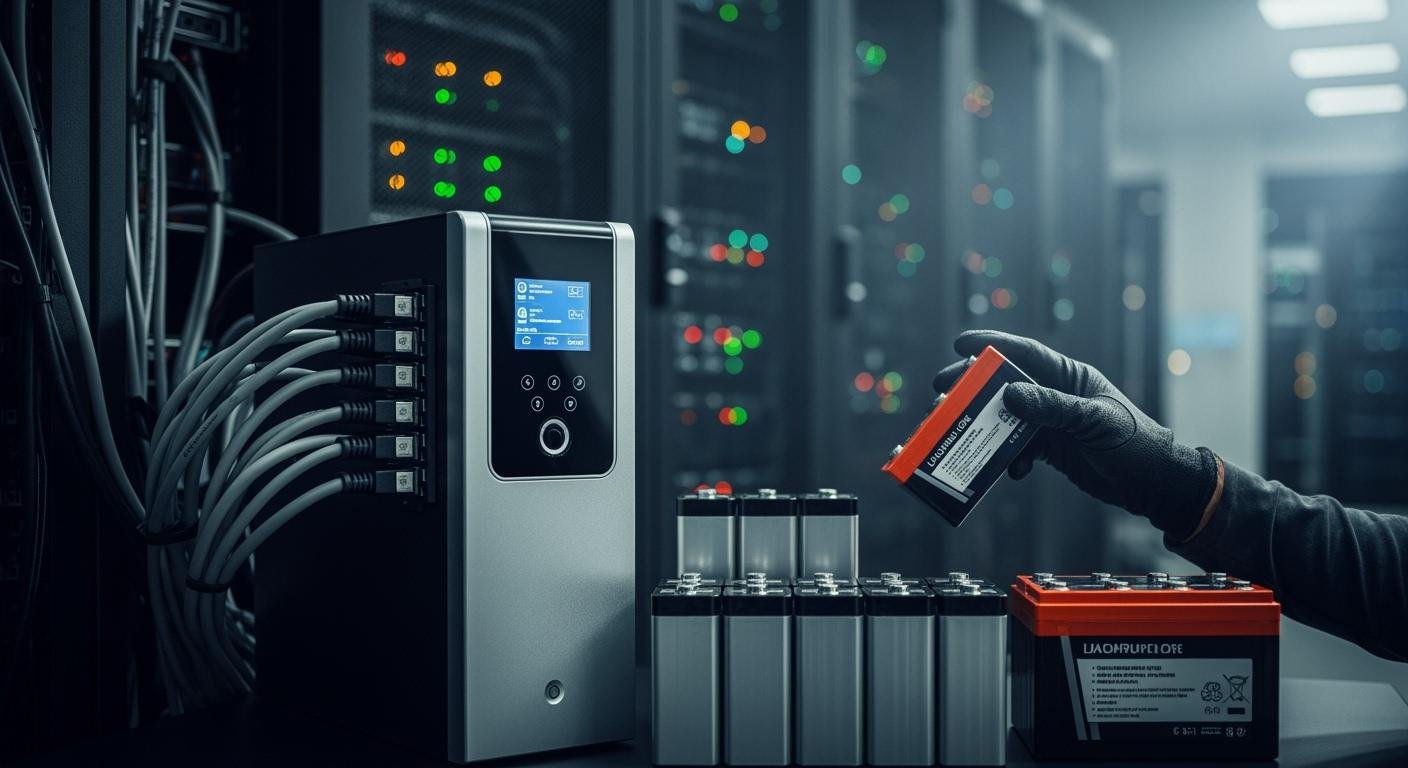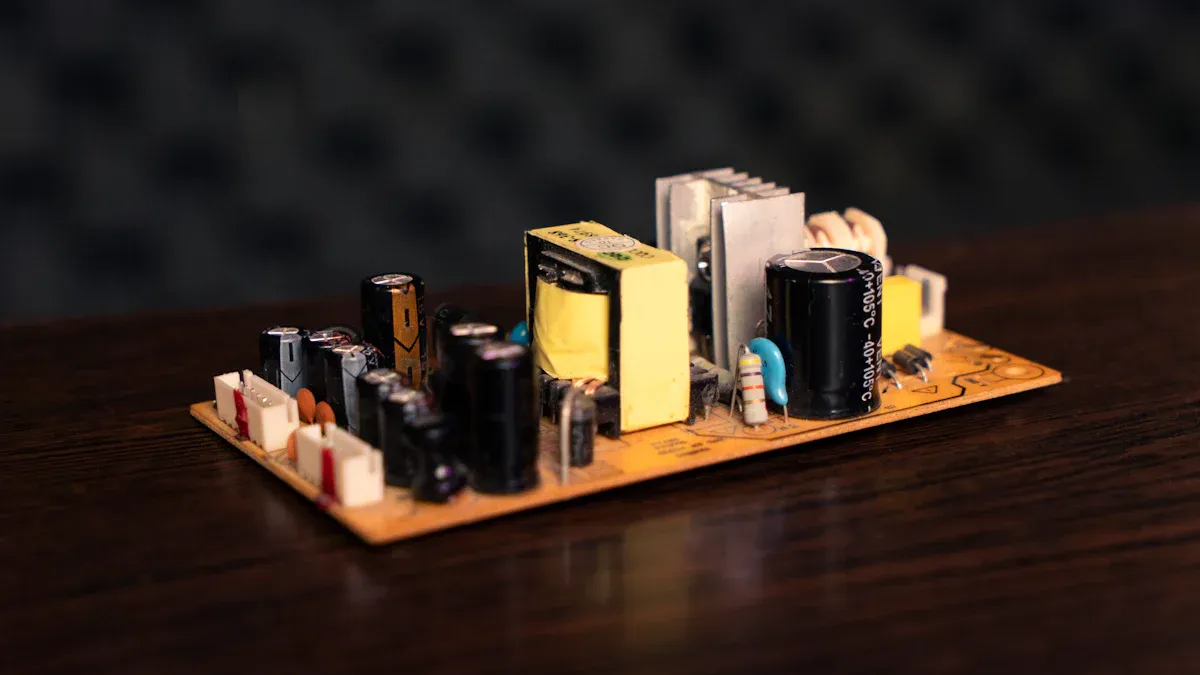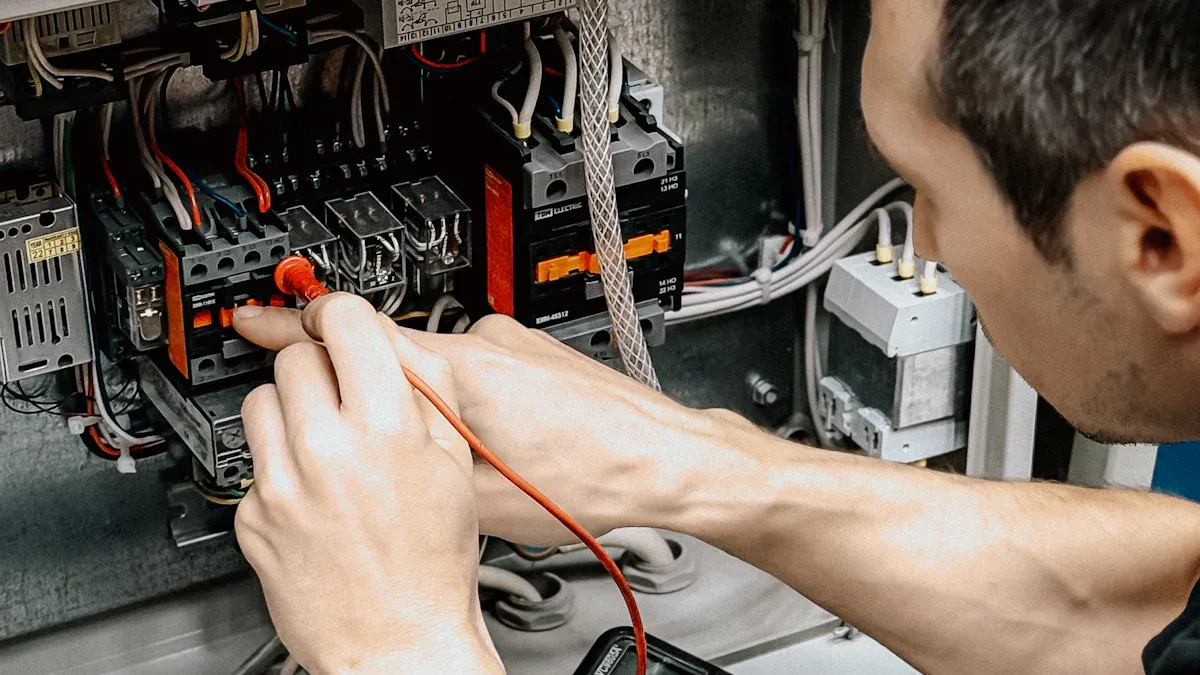
For modern UPS systems applications, Lithium Iron Phosphate (LiFePO4) batteries are the best overall choice. The superior performance of a LiFePO4 battery comes from its long lifespan, which lowers the total ownership cost. This advanced lithium-ion battery provides reliable power and energy. LiFePO4 batteries are a superior type of lithium battery, making the LiFePO4 battery ideal for critical systems.
By contrast, the traditional lead-acid battery is the go-to for a budget-friendly UPS. These types of UPS batteries have a lower initial cost. This battery is suitable for less critical applications. These batteries represent one of the main UPS battery types.
Top UPS Batteries Compared

Choosing the right battery for your Uninterruptible Power Supply (UPS) involves balancing cost, performance, and application needs. Different UPS battery types offer distinct advantages. This comparison explores the top options to help you make an informed decision for your specific ups systems applications.
LiFePO4 Batteries: The High-Performance Choice
Lithium Iron Phosphate (LiFePO4) batteries represent the peak of modern battery technology for UPS systems. A LiFePO4 battery delivers superior efficiency and an exceptionally long battery life. This performance makes LiFePO4 the premier choice for critical infrastructure.
The primary advantage of LiFePO4 batteries is their remarkable longevity. These batteries have a calendar life of 10 to 15 years. They can endure between 2,000 and 10,000 cycles, providing a very long life cycle. This durability significantly reduces the need for frequent replacements. The advanced chemistry of a LiFePO4 battery also provides faster charge times compared to other types.
Did You Know? A LiFePO4 battery is much lighter than a traditional lead-acid battery. For the same energy capacity, a lithium battery weighs about one-third as much. This weight reduction simplifies installation and handling.
While the initial cost of lithium-ion UPS batteries is higher, their Total Cost of Ownership (TCO) is substantially lower. Over a decade, a lithium UPS can save up to 30-50% compared to lead-acid systems. The savings come from eliminating replacement costs and reducing maintenance needs. The sealed design of LiFePO4 batteries means they require minimal upkeep. A Batterie-Management-System (BMS) handles most monitoring, further lowering operational burdens.
- Am besten für: Data centers, critical IT infrastructure, and any application where long-term reliability and low TCO are priorities. The power and energy density of LiFePO4 batteries make them ideal for demanding ups systems applications.
VRLA Batteries: The Traditional Standard
Valve-Regulated Lead-Acid (VRLA) batteries are the established standard for many UPS systems. These sealed lead-acid batteries are known for their proven reliability and low upfront cost. This makes them a popular budget-friendly option among the different types of ups batteries.
VRLA batteries have a shorter design life, typically lasting 3 to 5 years. Their performance is highly sensitive to ambient temperature.
- Manufacturers recommend operating them at or below 77°F (25°C).
- Higher temperatures drastically shorten their service life.
- Excessive heat can cause failures like dehydration or thermal runaway, where the battery’s internal heat generation becomes uncontrollable.
Common failure modes for lead-acid UPS batteries include overcharging, plate sulfation, and dry-out from high temperatures. Despite these limitations, VRLA batteries have a major environmental advantage. They are one of the most recycled consumer products in the world. The recycling process efficiently recovers lead and plastic for reuse.
- Am besten für: Small Office/Home Office (SOHO) setups, desktop computers, and non-critical applications where initial cost is the main consideration.
Pure Lead-Acid Batteries: The High-Temp Performer
Pure lead-acid batteries offer a significant upgrade over standard VRLA technology, especially in challenging thermal environments. These batteries use a purer form of lead, which enhances their durability and temperature tolerance.
Their key advantage is an extended operational temperature range, functioning effectively in conditions from -40°C to +80°C. This resilience allows them to thrive where standard lead-acid batteries would quickly fail. A pure lead-acid battery has a design life of up to 12 years, even in elevated temperatures. This extended lifespan bridges the gap between VRLA and lithium-ion technologies. The initial cost is higher than VRLA but generally lower than a LiFePO4 battery. Their robust construction makes them a reliable source of power in commercial vehicles and other demanding systems.
- Am besten für: Industrial settings, outdoor enclosures, and remote locations with poor climate control where temperatures regularly exceed the limits of standard VRLA batteries.
Nickel-Cadmium (NiCad) Batteries: The Extreme Heat Specialist
Nickel-Cadmium (NiCad) batteries are a niche but powerful solution for the most extreme environments. Their exceptional thermal stability and durability make them suitable for conditions where other battery chemistries cannot survive. A Nickel-Cadmium battery can operate in a wide temperature range, from -40°C to 60°C.
The robust nature of Nickel-Cadmium batteries gives them excellent durability and a long lifespan, often reaching 15-20 years in stationary applications. They can handle high discharge rates and deep discharge cycles without significant degradation. This makes them a reliable source of backup power for aerospace, military, and emergency lighting systems.
However, NiCad technology comes with drawbacks. The production cost is high, and the cadmium content makes them a hazardous material.
Important Note: Due to the hazardous nature of cadmium, NiCad batteries are subject to strict environmental regulations for disposal and recycling. California, for example, classifies them as universal hazardous waste.
- Am besten für: Specialized industrial applications, emergency backup power in extreme climates, and legacy UPS systems where high durability is essential and cost is a secondary concern.
Choosing a Battery for Your UPS

Selecting the right battery depends on your specific ups systems applications. The type of UPS system and its use case directly influence the best battery choice. This guide breaks down recommendations based on application suitability.
For Data Centers & Critical IT
Data centers demand maximum reliability and efficiency. For these environments, LiFePO4 batteries are the superior option. A LiFePO4 battery offers hohe Energiedichte. This allows facilities to store more energy in a smaller footprint. The scalability of LiFePO4 technology is also crucial. It allows power backup systems to grow with data center needs. The long design life of a LiFePO4 battery minimizes replacements.
Total Cost of Ownership (TCO) is a key factor. While the initial cost of a LiFePO4 battery is higher, it provides significant long-term savings. TCO includes:
- Initial purchase price
- Installation and maintenance
- Component replacement costs
The lower operational expenses of LiFePO4 batteries make them the most economical choice over a 10-year period. The high performance of a LiFePO4 battery ensures uptime for critical systems. The excellent energy and power of a LiFePO4 battery are unmatched. This lithium-ion battery technology provides the best power and energy for a modern UPS.
For Small Office / Home Office (SOHO)
A small office or home office has different priorities. Budget is often the primary concern. For these setups, a Valve-Regulated Lead-Acid (VRLA) battery is the standard. These batteries offer reliable power for a low upfront cost. The required UPS battery capacity depends on your equipment. A setup with multiple PCs may need a unit with a higher wattage, such as 900W, to ensure adequate runtime. While this lead-acid battery has a shorter lifespan, its affordability makes it a practical choice for non-critical applications.
For Industrial & Harsh Environments
Industrial settings present unique challenges. These environments often involve extreme temperatures, vibrations, and dust. Standard batteries fail quickly in such conditions.
- Pure Lead-Acid Batteries: These offer enhanced durability and a wider operating temperature range than VRLA. They are a good mid-range option.
- Nickel-Cadmium (NiCad) Batteries: For the most extreme heat, a Nickel-Cadmium battery is the specialist. Its thermal stability and durability are exceptional.
These specialized batteries and systems must meet strict safety standards. Certifications like UL 1778 und CE ensure the battery and UPS can operate safely. The right battery provides consistent power and energy, protecting sensitive manufacturing processes. The long-term efficiency of a LiFePO4 battery is also a consideration for some industrial lithium applications.
For new ups systems applications, LiFePO4 batteries are the clear winner. This lithium battery offers the best long-term value. A LiFePO4 battery often lasts the entire life of the UPS, which eliminates replacement cost. The superior power and energy of a LiFePO4 battery make it the top choice.
Final Takeaway: Choose a LiFePO4 battery for performance. Select a lead-acid battery for low upfront cost in non-critical settings. Consider a pure lead or nickel-cadmium battery only for extreme heat. These batteries provide reliable power and energy for your UPS.
FAQ
What is the best battery for a home UPS?
A VRLA battery is a common choice for home use due to its low cost. This battery offers reliable, short-term power. For longer life and better performance, a LiFePO4 battery is the superior option.
How often should a UPS battery be replaced?
A standard VRLA battery typically requires replacement every 3 to 5 years. A premium LiFePO4 battery can last over 10 years. The specific lifespan of the battery depends on its chemistry and operating conditions.
Can a user mix different battery types in a UPS?
A user should never mix different battery types. Each battery chemistry has unique charging and discharging properties. Mixing them can damage the UPS, create a safety hazard, and ruin the battery.
Does temperature affect my UPS battery?
Yes, temperature significantly impacts battery health. High temperatures drastically reduce the service life of any battery. A cool, controlled environment helps every battery achieve its maximum lifespan and performance.

